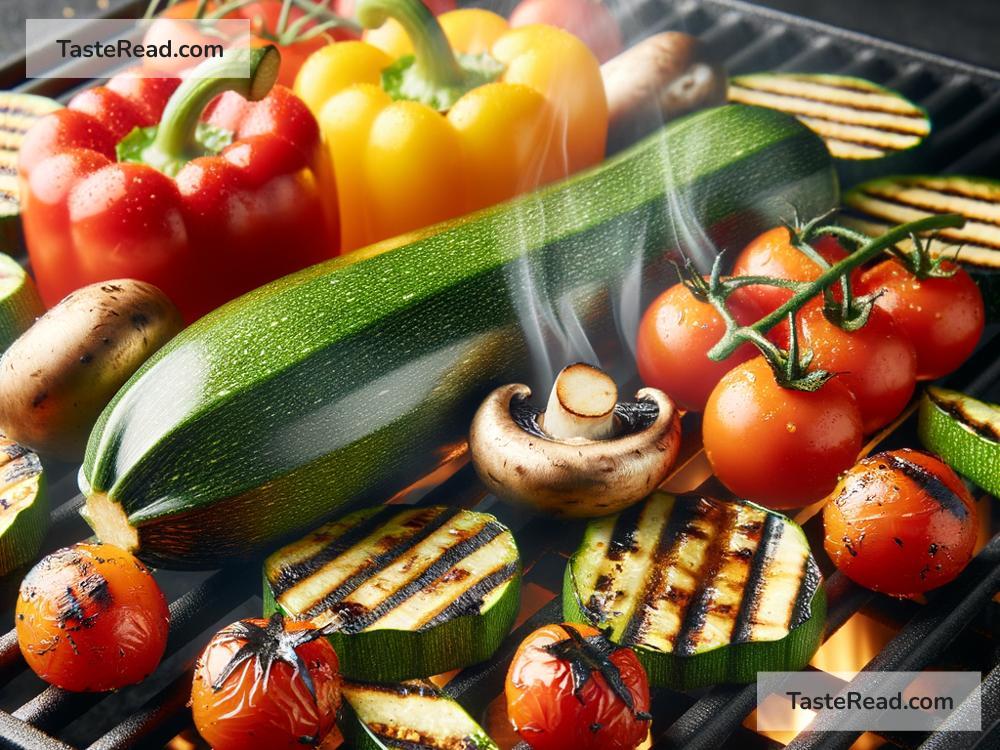Why Grilling Adds Depth to Vegetable Flavors
Vegetables are nutritious, versatile, and naturally delicious, but they don’t always get the love they deserve. Too often, veggies are boiled until bland or steamed to the point of lifelessness. If you want to truly appreciate vegetables, grilling is one of the best ways to enjoy their flavors. But what about grilling takes plain carrots, zucchini, or peppers and transforms them into something extraordinary? Let’s dive into the magic of grilled vegetables and why it adds depth to their flavors.
The Heat of the Grill: Caramelization and Sweetness
Grilling is all about high, direct heat. When vegetables hit a hot grill, something amazing happens called caramelization. Vegetables naturally contain sugars, and when exposed to heat, those sugars break down into deeper, sweeter flavors. The outside of the vegetable develops a golden or charred finish that’s not just visually appealing but also incredibly tasty.
For example, a raw onion is crunchy with sharp, almost peppery notes. But throw it on the grill, and it becomes soft, slightly smoky, and sweet. Similarly, grilling brings out the natural sugar in carrots, bell peppers, and corn, giving them a rich and full-bodied taste. The caramelization process adds complexity to each bite, elevating vegetables from simple to extraordinary.
Smoky Flavor: The Grill’s Signature Touch
One of the standout aspects of grilling is the smoky flavor it creates. When vegetables are placed on a grill, they absorb some of the smoke rising from either burning charcoal, wood chips, or gas flame. This adds a unique flavor profile that you can’t get from steaming or boiling. A grilled zucchini will have hints of smokiness that balance its mild flavor, while eggplant can take on a rich, earthy tone when grilled.
Smoke-infused veggies taste like summer barbecues, rustic campfires, and hearty home cooking. This smoky depth enhances their natural characteristics and gives you new layers of flavor with every bite.
Texture Transformation: Crispy Meets Tender
Grilling doesn’t just change the flavor of vegetables—it changes their texture. One of the worst offenders in bland vegetable preparation is boiling, which often turns veggies mushy and unappetizing. Grilling is the opposite. When vegetables hit the grill, the high heat sears their exterior, creating a slightly crisp or charred layer. Meanwhile, the insides of the vegetables become soft and tender.
Take asparagus, for example. Grilled asparagus spears develop a slightly crunchy outside while remaining juicy and flavorful inside. Similarly, cauliflower, mushrooms, and even Brussels sprouts undergo a transformation when grilled—they’re no longer limp or lifeless. Instead, they’re extra-textured with golden, browned edges that create dimension.
The Power of Seasoning and Marinades
Grilling also gives seasoning and marinades a chance to shine. A bit of olive oil, salt, pepper, garlic, or your favorite mix of herbs can stick to the vegetables better on the grill thanks to the heat. Oils start to coat and crisp the surface, while herbs infuse into the veggie as it cooks.
For an even bigger flavor punch, you can marinate your vegetables before grilling them. A simple balsamic vinegar marinade, for example, pairs flawlessly with cherry tomatoes, mushrooms, or eggplant, and grilling enhances its sweet and tangy qualities. The heat from the grill can help spices, oils, and marinades penetrate deeper into the surface of vegetables, ensuring every bite is packed with flavor.
Grilling Brings Out Hidden Flavors
Certain vegetables release hidden treasures of flavor only when exposed to high heat, and grilling is perfect for unlocking those secrets. Tomatoes, for instance, become smoky and tangy as their juices concentrate on the grill, making them taste sweeter and richer than raw tomatoes. Similarly, grilling heightens the nuttiness of artichokes or the earthiness of mushrooms.
These hidden flavors often emerge because grilling removes excess moisture. As water evaporates, you’re left with a more concentrated version of the vegetable’s natural taste. Grilled vegetables simply taste “bolder,” which explains why they feel more satisfying and stand out as a dish on their own.
Grilled Veggies Are Healthy, Too
Aside from the taste, grilling vegetables can also be a healthier cooking method compared to frying or other techniques that rely on heavy oils or creams. You don’t need much to grill vegetables—a bit of olive oil and a sprinkle of salt is often enough. Grilling lets the natural flavors of vegetables shine without the need for lots of added fats or artificial flavorings. It’s wholesome, clean eating, and delicious at the same time.
Easy and Fun: Cooking Outdoors
It’s not just about the flavors—grilling is an experience. Cooking vegetables on a grill outdoors brings people together, whether it’s at a backyard barbecue or a campsite. The smoky aroma, the sizzling sound, and the anticipation make it all the more exciting. And grilling vegetables is simple. Toss them with oil and spices, lay them on the grill, and in no time, you have a beautiful plate of flavorful veggies.
Final Thoughts
Grilling provides a perfect balance of heat, smoke, and seasoning to take vegetables from ordinary to extraordinary. It caramelizes their natural sugars for sweetness, adds depth through smoky flavors, and transforms their texture for a crispy, tender bite. Whether you’re grilling corn, peppers, or zucchini, every vegetable gets its moment to shine on the grill. The result is always the same—vegetables that are bursting with flavor, satisfying, and packed with nutrients.
So next time you’re cooking vegetables, skip the boring steam pot and fire up the grill. You’ll discover a whole new world of taste and texture that proves vegetables deserve a spot at every meal. Grilling vegetables isn’t just cooking—it’s creating magic.


